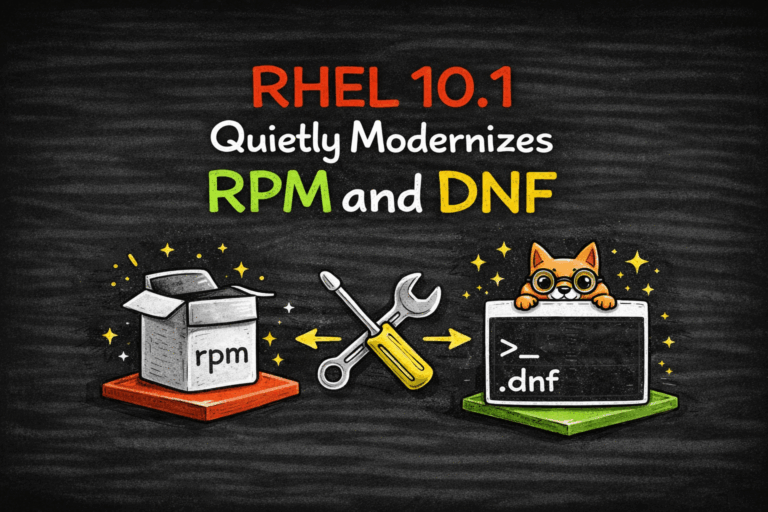As the fall leaves start to change colors and the chill in the air becomes more pronounced, the global open-source community has another significant change to celebrate: Ubuntu’s 19th birthday.
Nearly two decades ago, Mark Shuttleworth and his team introduced us to Ubuntu, a Debian-based Linux distribution aimed at making Linux a more user-friendly and accessible experience.
Today, we look back at its journey, its achievements, and the vibrant community that has grown around it.

The Humble Beginnings
Ubuntu, a word deriving from the Southern African philosophy of ‘ubuntu’, roughly translates to “humanity towards others.”
The ethos of the name reflects the distribution’s broader goal: to make Linux available and friendly for everyone.
When the first version, Ubuntu 4.10 (Warty Warthog), was released in October 2004, it promised a free, reliable, and intuitive operating system – and it delivered.
It used the ext3 file system. Support ended on 30 April 2006. Ubuntu 4.10 was offered as a free download and, through Canonical’s ShipIt service, was also mailed to users free of charge in CD format.
The release of Ubuntu 4.10 set the stage for what would become one of the most popular and influential Linux distributions in history.
See also: Mastering the Linux Command Line — Your Complete Free Training Guide
Its commitment to user-friendliness, combined with the power and flexibility inherent in Linux, made it an attractive option for both new and experienced users.
Facts about first Ubuntu release
While the subsequent success and growth of Ubuntu have brought many of its features into the limelight, there are certainly some lesser-known facts about the first release:
Short Development Time: Ubuntu 4.10 was developed in about 6 months, a relatively short period considering it was the project’s debut release.
Named After the Development Cycle: The “Warty” in “Warty Warthog” actually referred to the fact that this was the project’s first release and it might have some “warts” or bugs.
Limited Derivatives: Today, Ubuntu has numerous official derivatives like Ubuntu MATE, Lubuntu, Xubuntu, and more. Back in the Warty Warthog days, none of these existed. It was just Ubuntu with the GNOME desktop.
ShipIt Service: Canonical, the parent company of Ubuntu, offered a service called “ShipIt” which sent CDs of Ubuntu 4.10 for free to anyone who requested it. This initiative played a big role in spreading Ubuntu globally.
Installer: The installer was based on Debian’s installer but was text-based in Ubuntu 4.10. The more user-friendly Ubiquity installer we’re familiar with today didn’t appear until later.
Default Applications: Some default applications from the Warty Warthog era are no longer present in modern Ubuntu. For instance, it shipped with the Synaptic package manager by default, while today, Ubuntu Software Center (or GNOME Software) is the default in recent releases.
Limited Architecture Support: The first release primarily focused on the x86 architecture. Support for other architectures like ARM was added in later releases.
No LTS: The concept of Long Term Support (LTS) releases, which are now a cornerstone of Ubuntu’s release strategy, was not introduced until Ubuntu 6.06 “Dapper Drake”.
Security Repositories: One of Ubuntu’s promises was to provide ongoing security updates for its releases. However, in the very early days, the infrastructure for security repositories was still being established.
GNOME 2.8: While recent versions of Ubuntu have shifted back to GNOME, the Ubuntu of 2004 came with GNOME 2.8. The Unity desktop, which many associate with Ubuntu’s middle years, was not introduced until 2010.
Ubuntu 4.10 laid the foundation for what has become one of the most popular and influential Linux distributions in the world. Looking back at its humble beginnings provides an interesting perspective on how far Ubuntu and the broader Linux ecosystem have come over the years.
Pioneering Achievements
Over the years, Ubuntu has continued to innovate and adapt to the changing technological landscape.
It has introduced various flavors, including Kubuntu, Lubuntu, Xubuntu, and Ubuntu Server, each serving different user needs.
1. Desktop Experience: Ubuntu popularized the GNOME desktop environment, and later the Unity interface, focusing on ease of use for newcomers without neglecting power users.
2. Server & Cloud: Beyond the desktop, Ubuntu became a favorite for server environments. It’s now widely adopted in cloud infrastructures, playing a pivotal role in the rise of the cloud era.
3. IoT and Embedded Systems: Ubuntu has tailored versions for IoT devices, emphasizing security and reliable updates.
4. WUBI: The Windows-based Ubuntu Installer (WUBI) allowed users to install and uninstall Ubuntu like any other Windows application, lowering the barriers for newcomers.
5. Snaps and Flatpak: Ubuntu has been at the forefront of universal package systems, making software installation safer and more straightforward.
The Power of Community
Ubuntu’s journey wouldn’t be complete without mentioning its vibrant community. The forums, mailing lists, and, more recently, platforms like Ask Ubuntu have helped users troubleshoot, learn, and grow.
The Ubuntu community’s spirit of collaboration and support echoes the distribution’s name and its human-centric philosophy.
Challenges Along the Way
No journey is without its challenges, and Ubuntu’s is no exception. Controversies around data collection, Unity’s introduction, and the Mir display server have sparked debates. Yet, these debates signify the passionate user base Ubuntu has cultivated – a community that cares deeply about the product’s direction and integrity.
Looking Forward
As Ubuntu approaches its second decade, it stands not just as a distribution but as a symbol of what open-source communities can achieve. With an exciting roadmap, a dedicated parent company in Canonical, and an ever-passionate community, the future looks bright.
In celebrating Ubuntu’s 19th birthday, we’re not just celebrating an operating system; we’re celebrating a vision of accessible technology, a legacy of innovation, and a community that carries the torch of the ubuntu philosophy: humanity towards others.
Happy Birthday, Ubuntu!




Cool. Thanks for the detailed article.